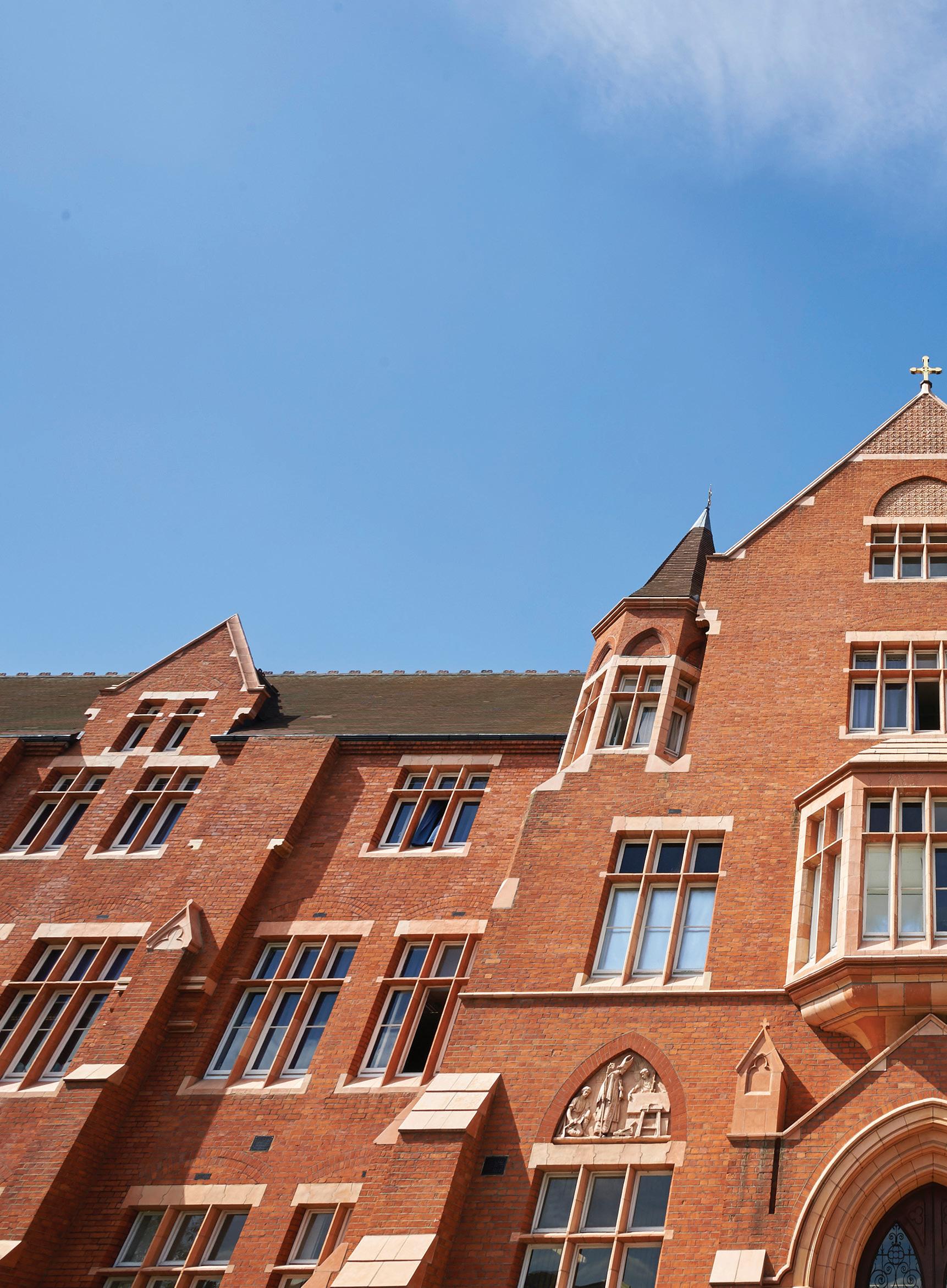




1446
A school has been associated with the parish of St Dunstan’s in the East as far back as the 15th century.


1867
St Dunstan’s Educational Foundation is established by the parishioners of St Dunstan’s in the East in the City of London to create a school capable of accommodating 400 pupils.


St Dunstan’s College is recognised by King’s College London and the London County Council as one of the leading schools in the world for the technical education it offers.
1897

The first group of leavers from the College formalises their regular social gatherings into an official Old Dunstonian Association.

1902
1888
St Dunstan’s College opens its doors in Catford for the first time with 91 boys on roll. 60 boarders join the following summer.
1915
154 former St Dunstan’s pupils participate in the Battle of Loos. Of these, more than 40 are injured and 19 die. This is the largest number of deaths in a single battle for the Dunstonian community.
1903
The school song is written in order to open and close Prize Giving ceremonies.

The Union Society is established as the first recorded co-curricular activity at the College. The Society is divided into three branches; literary and debating, natural history and photography.
1923
Headmaster Forder establishes the first extensive co-curricular programme embedded within the College curriculum.
1919
The House System is revised.
New houses are created - Bennett, Goosey, Griffiths, Johnson, Lane, Ross, Thomas and Wilson - all named after Dunstonians fallen in the Great War.
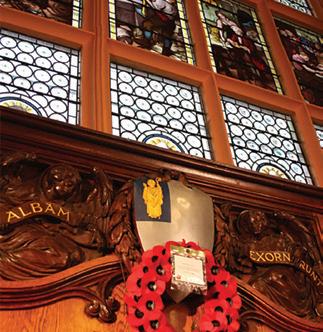
1914
The House System is introduced and is initially based on the geography of where pupils live.
1909 Officers’ Training Corps (now the Combined Cadet Force) is established.
1934
Improvements to the College infrastructure are made, including heating, running water, a new Dining Hall, and electricity.
1938
The ancient tradition of Beating of the Bounds is revived by Headmaster Usherwood to maintain the connection between the College and the Parish Church associated with its foundation.
1930
The St Dunstan’s Benevolent Fund is established to provide an education for pupils from less privileged backgrounds.
1939
The looming threat of the Second World War forces the College to evacuate south to Reigate while the College grounds are used as a First Aid Station for the War Ministry.

2012
The Jubilee Ground is purchased; giving the school improved sporting facilities and forging closer links with the local community.

2010
Dunstonian Chuka Umunna becomes MP for Streatham.
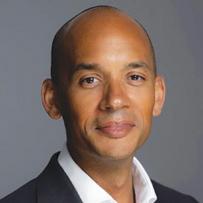
2007
Dunstonian Sir Martin Evans is awarded a Nobel Prize for his work in biochemistry.

2006
Dunstonian Alice Bird appears in Notes on a Scandal, alongside Cate Blanchett. A Nursery is added, to the school, welcoming pupils from age three.
1994
To commemorate the 125th anniversary of the College, a whole year of activities are held, beginning with the Head greeting every pupil by hand and ending with the burial of a time capsule.
Head Nick Hewlett relaunches the St Dunstan’s Festival.
The Wellness Centre is officially opened becoming the school’s dedicated hub for student wellbeing.
St Dunstan’s College becomes a fully coeducational school welcoming girls for the first time. The first St Dunstan’s Festival also takes place, quickly becoming known as the ‘Edinburgh Festival of South London’.
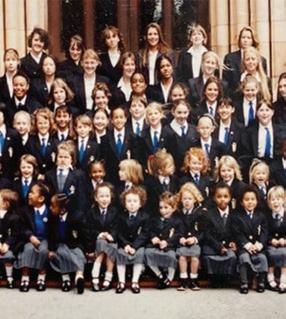
1973
The Prep Block opens to accommodate the growing number of pupils on roll at the College.
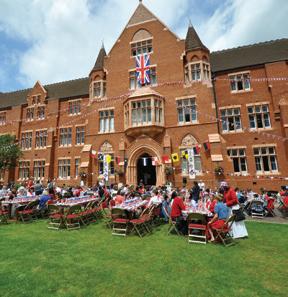

The Music and Physics Blocks are constructed to support a broader curriculum offering for pupils.
1961

2022
St Dunstan’s College winsIndependent Senior School of the Year at the TES Awards. The new Performing Arts Centre also opens with a new 170-seat theatre.
2021
The new Junior School building, STEM Centre and Sixth Form Centre are officially opened by Old Dunstonian and Nobel Prize winner, Sir Martin Evans.


2020
St Dunstan’s College wins Co-educational School of the Year at the Independent Schools of the Year Awards.


2019
The Independent Schools Inspectorate gives St Dunstan’s an ‘excellent’ rating in an inspection visit. The BBC’s political show, Question Time, is filmed in the College’s Great Hall.
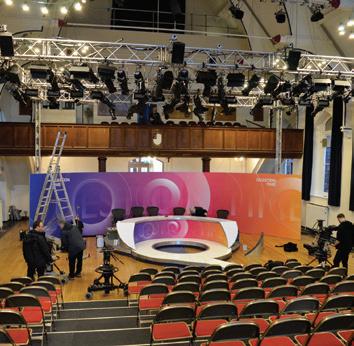
1944
A second temporary relocation of the College to Caerphilly, in Wales, is necessary due to increased V2 rocket attacks on London and the Home Counties.



The College swimming pool is constructed and swimming lessons are made available to all pupils.
The current Refectory opens, pioneering the hyperbolic paraboloid architectural design.

1958
The Sports Pavilion is constructed to provide up to date facilities for the increasing number of sports on offer at the College.
1947
Under new laws, the College becomes completely independent.
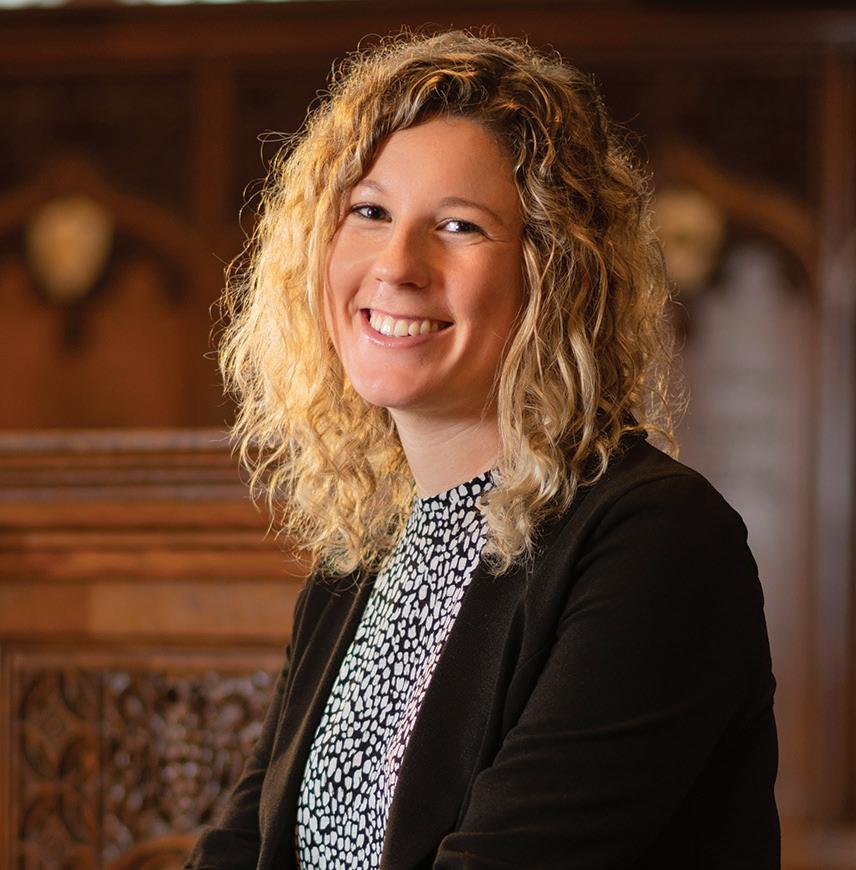
Welcome to the Junior School, where pupils make their first marks on the blank canvas of their St Dunstan’s shied as they begin their College adventure, learning who they are and discovering a true love of lifelong learning from the very earliest stages. Our academic ambition is cultivated by a balance of challenge, rigour, immersive learning experiences and independent exploration. Our engaging, broad and balanced curriculum is unashamedly aspirational for each and every pupil, regardless of their starting point, and equips them with the necessary skills they will need to thrive as proactive global citizens within a rapidly changing world. Our pupils see that through learning, they gain a better sense of who they are, what they can achieve, and what they will be able to accomplish in the future. Learning at St Dunstan’s does not just take place within our state-of-the art classrooms; learning
opportunities are embraced and appreciated in any setting, whether it is through our co-curricular ‘Forder’ programme (with over 80 activities taking place each week), performing a production on a professional stage, by facing a fear on one of our residential visits, playing a match to understand the benefits of teamwork and sportsmanship or developing their understanding the world around them in our Woodland Classroom. Our pupils relish learning for their own personal development and fulfilment. We are a coeducational Junior School for children from Nursery to Year 6. We take pride in our broad and balanced curriculum which is taught by our highly-skilled teachers and provides children with the skills, knowledge and understanding they need in order to develop into creative, curious and courageous individuals. No day at St Dunstan’s is ever the same and it is through our rich, exciting and ambitious schedule of activities that we can focus on a holistic approach to education, in order that our pupils can develop into well-rounded individuals, who feel happy and safe in school. As a Junior School within a whole-College, our pupils benefit from the consistency of a Form Teacher, but also the subject specialist expertise, resources and first-class facilities in art, design technology, drama, music, swimming, PE, computing, Modern Foreign Languages and the Stuart Curriculum (PSHEE). As such our pupils make
rapid progress in every subject and it is through exposure to a number of subject areas and enrichment opportunities that our pupils thrive. Our offering enables pupils to discover what sparks their interest, relishing the opportunity to explore new skills, but within a supportive environment, created by strong teacher/pupil relationships. The best way for you to be able to feel the energy of the pupils and staff, and truly understand how unique and exciting education is here at St Dunstan’s College, would be to visit us in person. I strongly encourage you to come to see our school in action. We host several Discovery Mornings in addition to a whole College Open Day on Saturday 24 September 2022 (dates and booking form are detailed on the website). These include tours led by our pupils, who are very proud of being part of the St Dunstan’s community, and who will happily offer insight into their own personal school journey. I look forward to welcoming you to St Dunstan’s Junior School soon.


‘Pupils develop convincing self-understanding and confidence from an early age. They have a positive outlook and are clear that they can become whoever they want to be in the school’s open and supportive environment’
St Dunstan’s College has undergone its most significant redevelopment since its foundation in 1888.
St Dunstan’s College is ideally positioned: within 15 minutes by train from London Bridge or Charing Cross, it is set in 68 acres of land across two sites, accessible within walking distance. Our magnificent historic buildings, dating back to our 1888 foundation, sit comfortably alongside the most recent 21st Century developments.
With our move into our new Junior School building in April 2021, our forward-thinking approach to learning is now matched by modern, bright, spacious and first-class facilities. The building includes state-

of-the-art classrooms, which feature innovative technology, furniture, and fittings. Pupils have access to a Junior School Hall, Pre-Prep and Prep libraries, Art Room, Music Room and an ICT suite. The children also benefit from being able to access all the College’s facilities, resources and learning spaces, including our College Performing Arts Centre.
The Great Hall of St Dunstan’s is the physical and symbolic heart of the College. It has had extensive renovation in recent years including a new organ, sound and lighting system. The Great Hall serves multiple purposes for our College and wider community, including
regular assemblies, events, musicals and plays. It is also the home to the permanent memorial to the hundreds of Dunstonians who lost their lives in the Great Wars. The magnificent stained glass, depicting the varied life of St Dunstan, is a wonderful focal point for our work at the College.
St Dunstan’s has developed a unique, dedicated facility known as the Wellness Centre, to serve as a hub for pupil mental and physical health services. The Wellness Centre – historically known as The Pavilion – is home to First Aid and medical support, counselling, peer mentoring, chaplaincy support, and also features spaces for pupils to be still and reflect.
Our Woodland Classroom is a dedicated outdoor space for Junior School pupils. The area is designed for children to take part in Forest School lessons, learn about the great outdoors and gives them an opportunity to see wildlife in action. There is a pond, bug and bee house, and an area for planting.
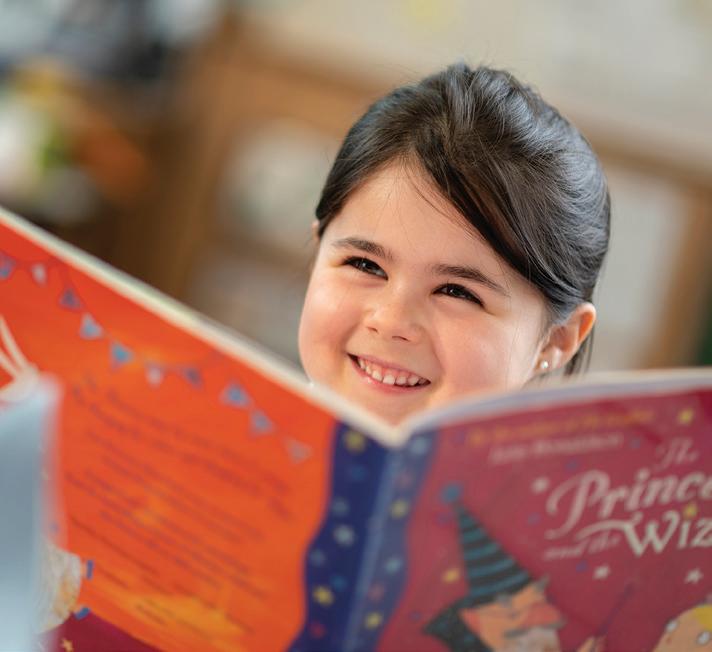

In addition to the facilities contained on our main school site, the College also owns the Jubilee Ground – 23 acres of playing fields in the centre of Catford, a three-minute walk from the College
site. Pupils have access to natural cricket, football and rugby pitches as well as a number of high-quality MUGAs (Multi-use Games Areas) providing opportunities to play hockey, football, netball and rugby.
Pupils have access to a wide range of sporting opportunities across both our sites, both for competitive sport, training and for leisure. Our sporting facilities include two large playing fields on the main College site, a sports hall, gym and fitness studio and a 31 metre indoor swimming pool.

‘This represents the most significant redevelopment of our College sites since our foundation in Catford, in 1888. I feel sure our founders and benefactors would be proud of the innovative new buildings that are being constructed, as records show they were intent that a St Dunstan’s education should be ‘ahead of the current time’
Nick Hewlett - HeadIn the Early Years Foundation Stage (EYFS – Nursery and Reception) we are a community of learners: teachers undertake investigations with pupils, encouraging curiosity, awe and wonder in order that they can discover the excitement of learning, whilst modelling positive learning behaviours such as asking questions, taking risks and learning from mistakes. Pupils develop key skills through experiences, which are based on their personal interests, where they feel safe and secure asking questions at this critical stage of development.

The EYFS staff at St Dunstan’s understand the importance of developing the key social, emotional, communication and physical skills that underpin all areas of the curriculum and which children need in order to experience academic and social success throughout their school life. Teachers have a high level of knowledge and regard every moment and observation as a teaching and learning opportunity. Spontaneous moments such as playing in the snow, a child’s new pet or observing nature in our Woodland Classroom, are used as a basis for planning rich
learning experiences. In essence, our curriculum is bespoke to a particular cohort and their needs; it is ever-evolving and we respond to what we see and know about the children in order that everyone is able to achieve their very best. Our highly experienced teachers and teaching assistants provide children and families with a continuity of care throughout the foundation stage, in preparation to begin Key Stage 1. The strong communication between teachers ensures that our pupils are well supported and prepared for their transition from Nursery to Reception.
Pupils are directors of their own learning. Using the Early Years Curriculum as a basis for our planning, each child is stimulated and challenged through a personalised and bespoke curriculum.
Pupils who attend our Nursery enter Reception confident and ready to learn because their emotional and social needs are considered and catered for from the very first day they join us. Our EYFS pupils benefit from the wonderful resources on offer at St Dunstan’s, including science laboratories, visits to our kitchen, the Sports Hall, the Woodland Classroom and the swimming pool, providing our Nursery pupils with a variety of rich experiences outside of the classroom setting. Each classroom extends into the outdoors, with large balconies to provide outdoor learning experiences in all areas of the curriculum.
Each week our children receive lessons from specialist staff in PE, swimming, languages and music, as well as optional after-school activities such as football, multi-skills and drama. Pupils relish the opportunity to share their learning and positive experiences with their families throughout the year at assemblies, performances during our St Dunstan’s Festival and on Sports Day.
We really see the EYFS as the first stepping stones of what will be an exciting and individualised St Dunstan’s College journey. With experienced and knowledgeable staff, who engender a culture of discovery, achievement and cement a love of learning at the very first stages, every pupil is able to thrive in the safe and secure environment that we create.
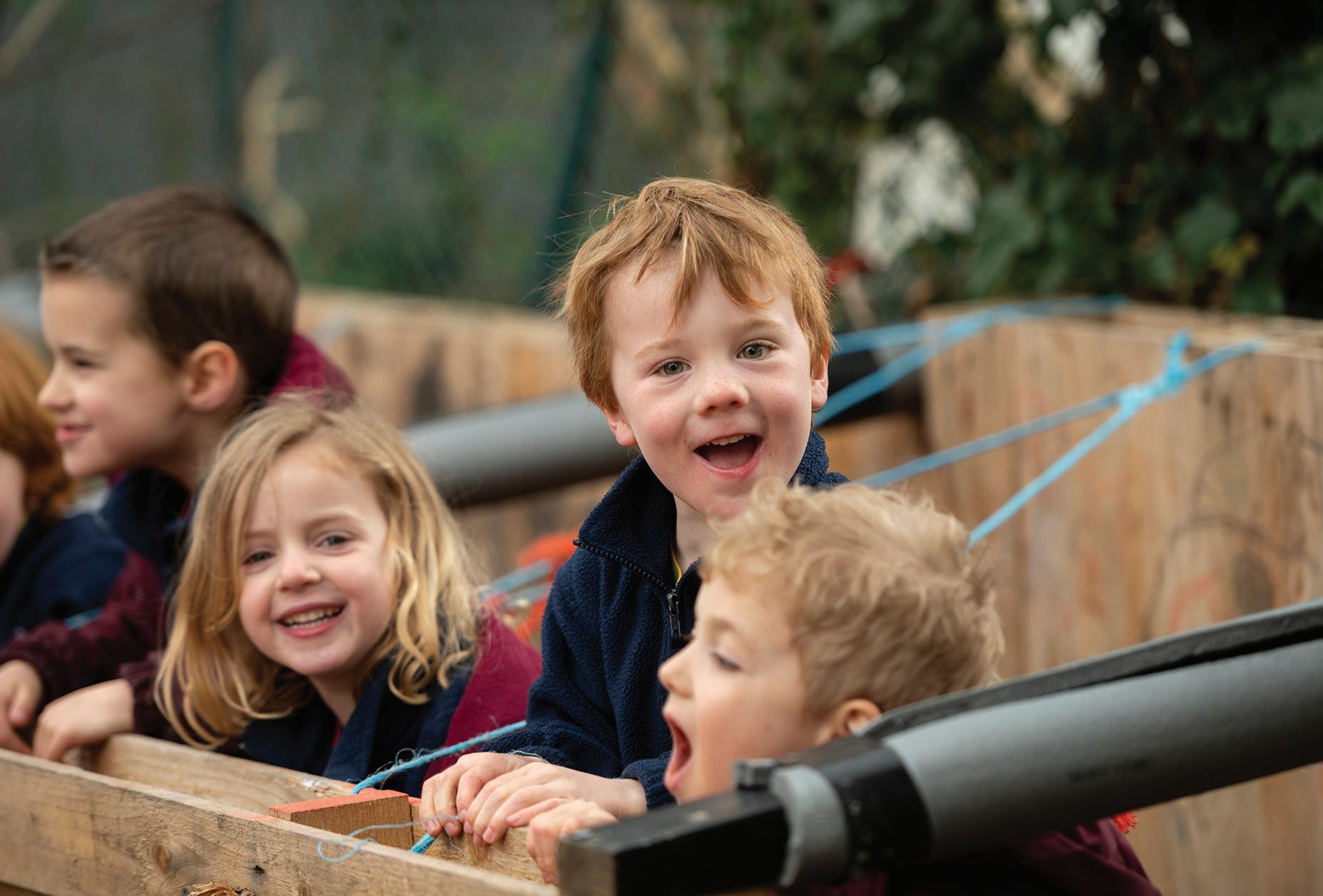

‘We learn important things. In the Woodland Classroom we make fires and cook popcorn’ Reception pupil
Our children have a wide variety of exciting experiences during their time in Pre-Prep. We believe that we have a very important job to nurture curiosity and independence from an early age.
Academic and pastoral needs are of equal importance: a kind word to your friend is valued and celebrated as much as effort made during classroom tasks and activities.
Children in the Pre-Prep are taught phonics through daily sessions using a range of memorable and interactive synthetic phonics programmes. Pupils further develop their phonological awareness through spelling and
handwriting lessons, where they learn to read and write using a cursive, joined script. Using highquality texts as a stimuli, pupils are given the opportunity to write in a variety of styles and genres. In the first years of mathematics, there is a strong emphasis on developing core number and calculation skills. Pupils engage in practical tasks to cement their understanding using concrete resources, before moving on to more
formal calculation methods. In Year 1, pupils begin weekly lessons in reasoning, where they are taught skills and strategies to support mental mathematics and problem solving.
During their time in the Pre-Prep, pupils benefit from weekly lessons delivered by specialist teachers in music, languages, ICT, PE, swimming, Stuart lessons (PSHEE) and games.
From Year 1, art is taught as a
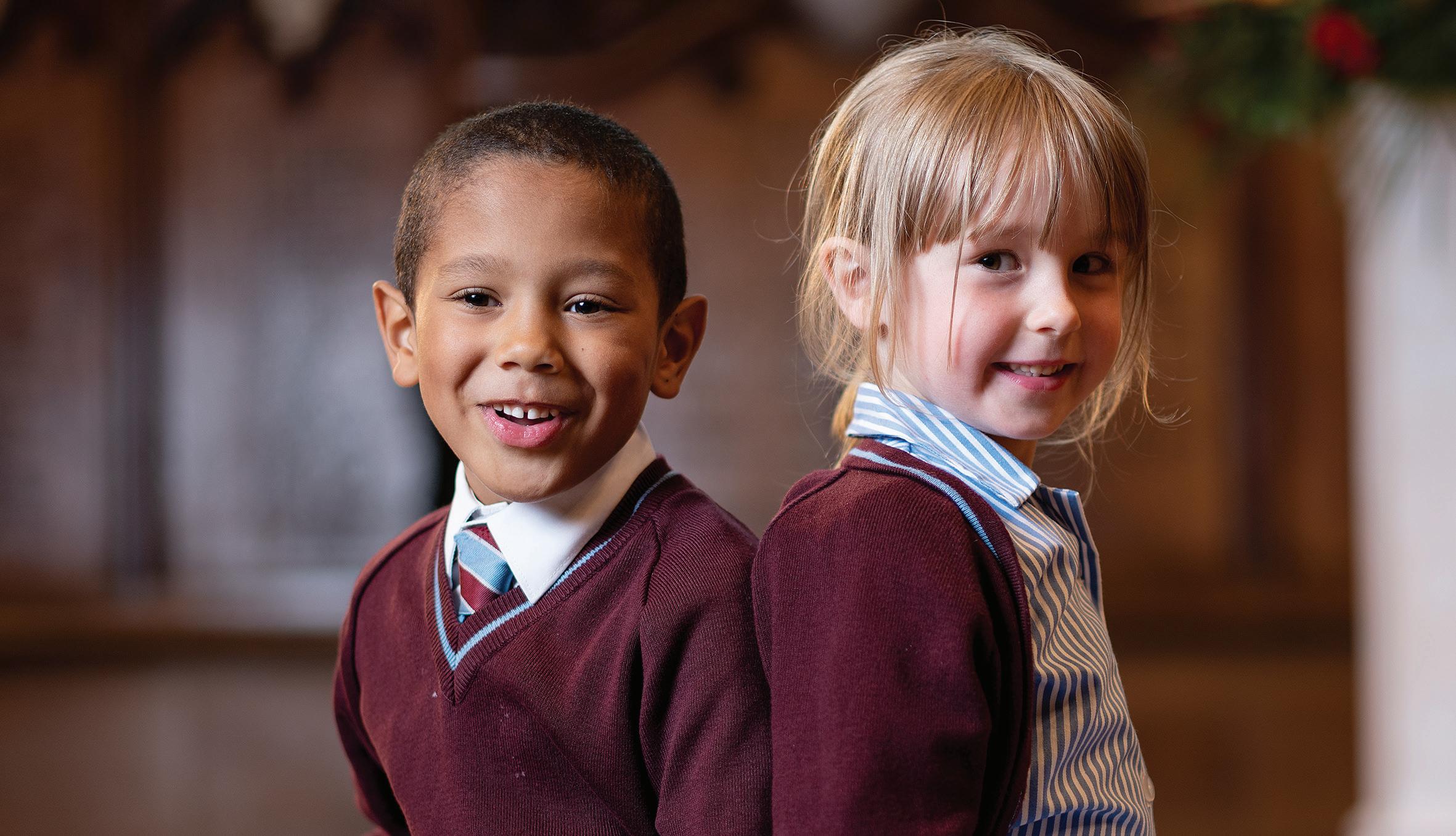
skills-based discrete subject in our well-equipped art room, as well as creatively through topic-based learning and thematic projects linked to core curriculum subjects.
Pupils in Years 1 and 2 benefit from their own dedicated outdoor learning spaces, which are an extension of the classroom, as well as lessons in our Woodland Classroom.

As our pupils mature and progress, their level of challenge is increased, meaning they develop learner resilience from an early age. They begin their journey into the world of the International Primary Curriculum (IPC) and are able to understand and appreciate links between the humanities and science through exciting, meaningful and thought-provoking topics. They also begin their Stuart Curriculum (PSHEE) lessons. These give the pupils the space to question and explore the world beyond their set subjects, looking at issues such as relationships, physical and mental health, and developing a greater understanding of the wider world.

‘I really love PrePrep because you can learn new things and we also get to be really curious by sometimes taking our learning outside ’
Year 2 pupil
Prep consists of Years 3 to 6 and with increased independence comes further opportunities to take part in many areas of Junior School life.
Prep pupils benefit from a greater variety of subject areas and specialist teachers. The curriculum is tailored to the values, ethos and high academic expectations of our College by subject coordinators. This is the adapted by Form Teachers to ensure that pupils are provided with a consistent, yet personalised learning experience, meeting the needs of all the pupils, wherever their starting point may be. We ensure that pupils are appropriately challenged and able to develop higher-order thinking.
This is particularly evident in the International Primary Curriculum (IPC). As well as developing knowledge, skills and understanding about a particular concept, pupils are also encouraged to make links across subjects and contextualise their learning to the real world. Pupils have the opportunity to learn in a variety of different ways to cater for a range of learning styles. They can also take full advantage of the vast co-curricular offering. The Forder Programme, (named after one of our first visionary Headmasters,
Reverend Forder), enables each pupil to select an activity that interests them during two timetabled lessons. These range from calligraphy to sporty statistics, coding to mindfulness – all pupils are given the opportunity to delve into topics and skills that truly interest them. Forder activities are also available to pupils before, during and after school, as well as during the school day.
Pupils are encouraged to take more responsibility for their academic progress through their Learning Scores, and they are also encouraged to take on leadership roles within the school community. At St Dunstan’s College, we believe in encouraging positive learning behaviours which are then reflected in a child’s Learning Scores. Pupils are actively supported to consider their subject engagement, response to feedback, organisation, independence and collaboration. Ownership and development in these areas are pupil driven to build a foundation for a positive attitude and outlook towards lifelong learning.
There is always an air of excitement in the Prep and never a dull moment: from an array of specialist workshops and educational visits, to pupils taking part in many sporting fixtures and performances. The learning journey for each pupil is individual to them and enhanced through our holistic approach to education.
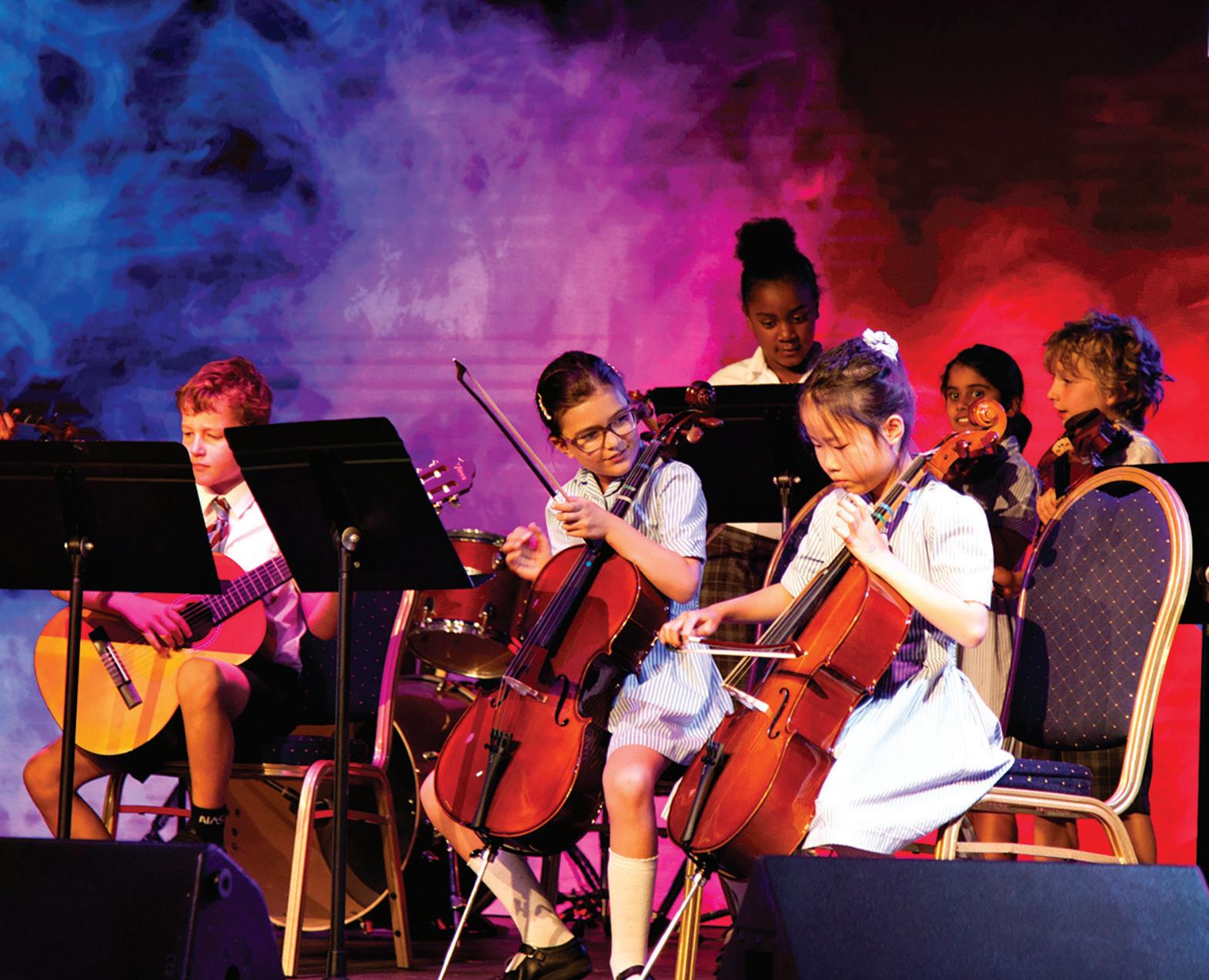
‘I like how there is always someone there to talk to; my teachers are incredibly supportive. Life is very busy in Year 6 but in an exciting way - there is always something going on: The Festival, our French trip, our production, DT days, sports fixtures and much more’

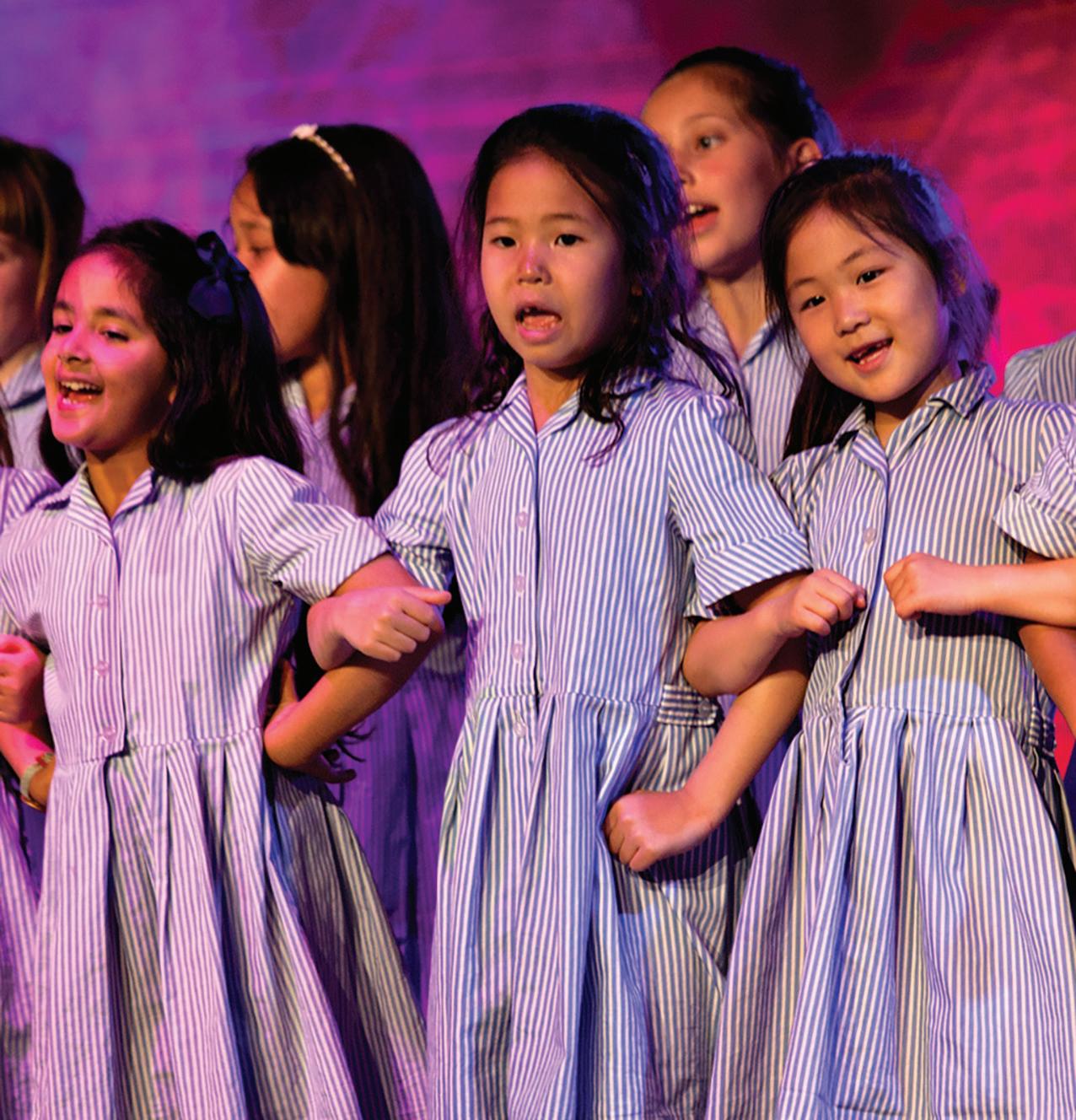
Year 6 pupil
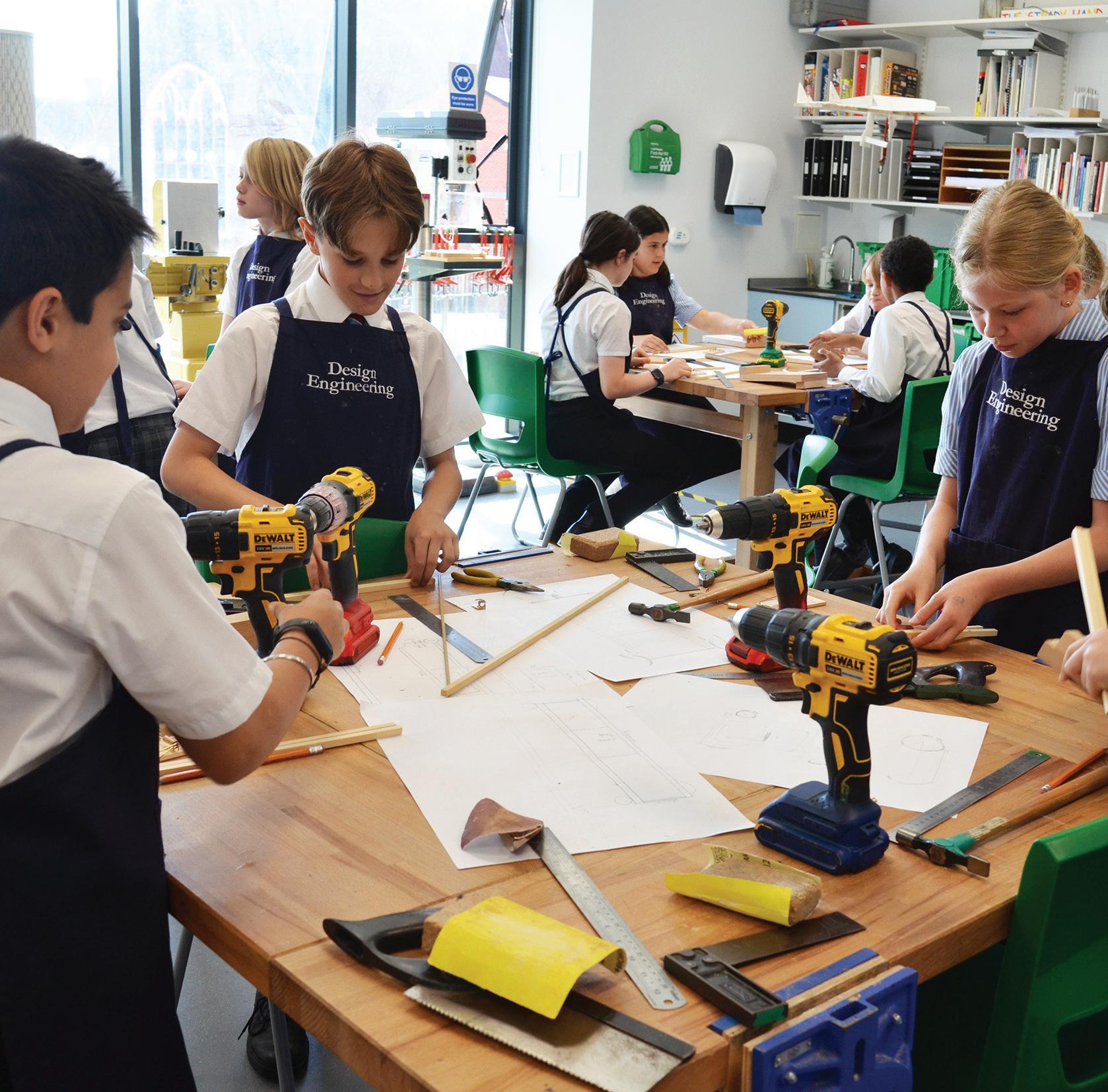
In the Junior School, history, geography, and science are taught using the International Primary Curriculum (IPC). In the Early Years Foundation Stage, the International Early Years Curriculum (IEYC) supports key areas of learning through holistic enquiry and play-based approaches that cover all curriculum areas including personal, social, and emotional development.
Through exciting, cross-curricular thematic units, such as Temples, Tombs and Treasures, Space Explorers and Saving the World, Junior School pupils begin to recognise the independence and interdependence of history, geography and science, which, in turn, enables them to make purposeful links and connections throughout their learning. Embedded within each unit is the development of international mindedness which allows children to develop their understanding of different cultural and global perspectives on current issues.
Pupils launch into a new unit each term or half-term through an entry point activity. The activity, be it a trip, a workshop or a themed day at school, fires the imagination and gets

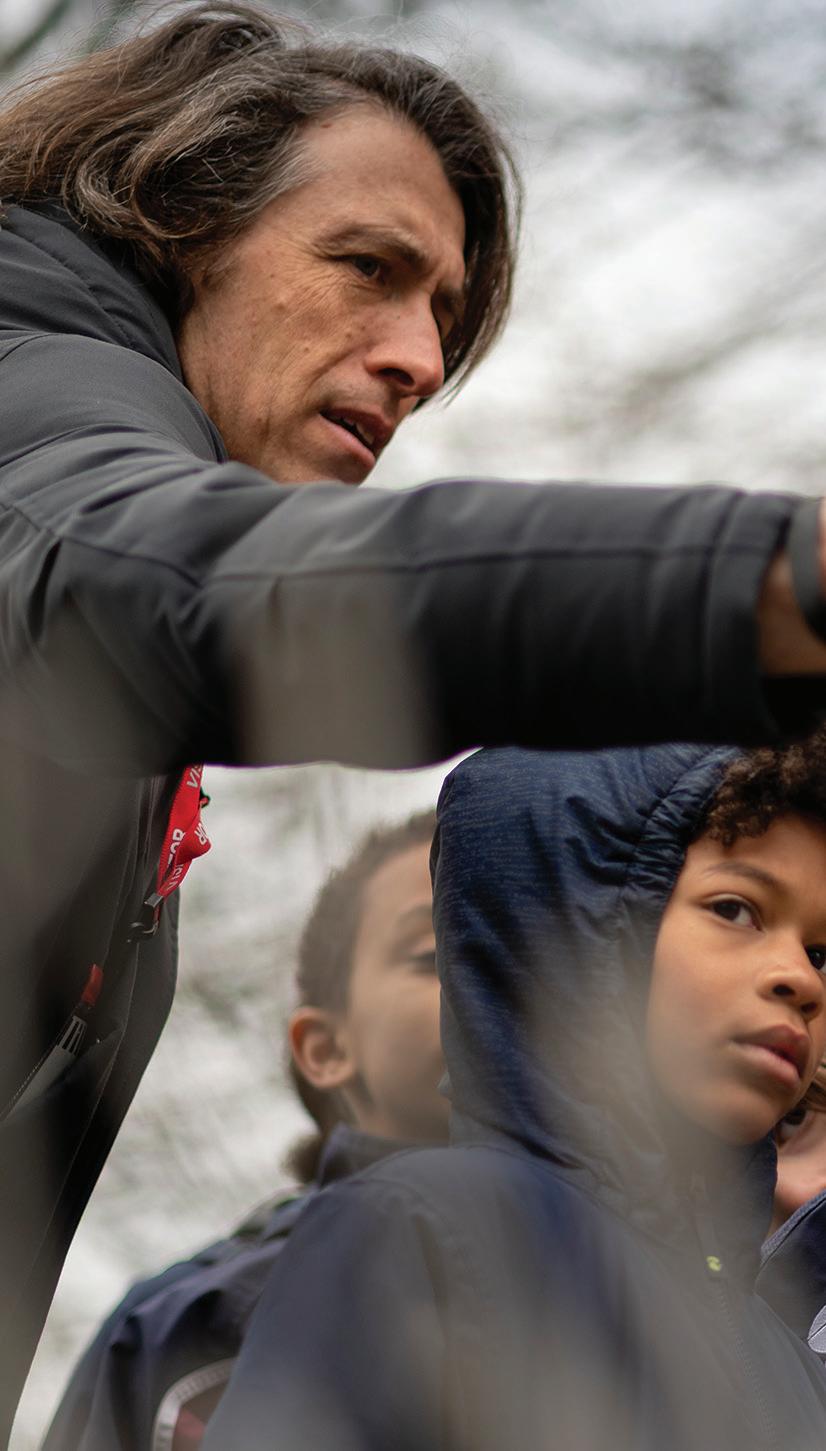

everyone excited and engaged in the theme. It also provides a common platform so that every pupil has an experience to draw from as they progress through the unit.
Over the course of the topic, pupils develop their knowledge, skills and understanding and become fully immersed in their studies through rigorous, collaborative and memorable learning activities that appeal to all learning styles and are relevant for all children of all abilities. Each unit culminates in an exit point. From space exhibitions and rocket launches to historical parades and protests to protect the environment, children take great joy in sharing their learning with members of the St Dunstan’s community.
Year 5 pupil
Year 2 pupil


‘I have really enjoyed the topics we studied this year; The Great, The Bold and The Brave was one of my favourites. We got to experience life in Ancient Greece in a day of storytelling, drama, games and even tested ourselves in an Athenian Mini Olympics’
‘My favourite thing about IPC is that we get to learn about lots of different topics and we get to investigate like we are scientists’
In the Junior School, we take pride in providing our pupils with an extensive and broad co-curricular programme and our pupils relish the opportunity to learn a new skill.
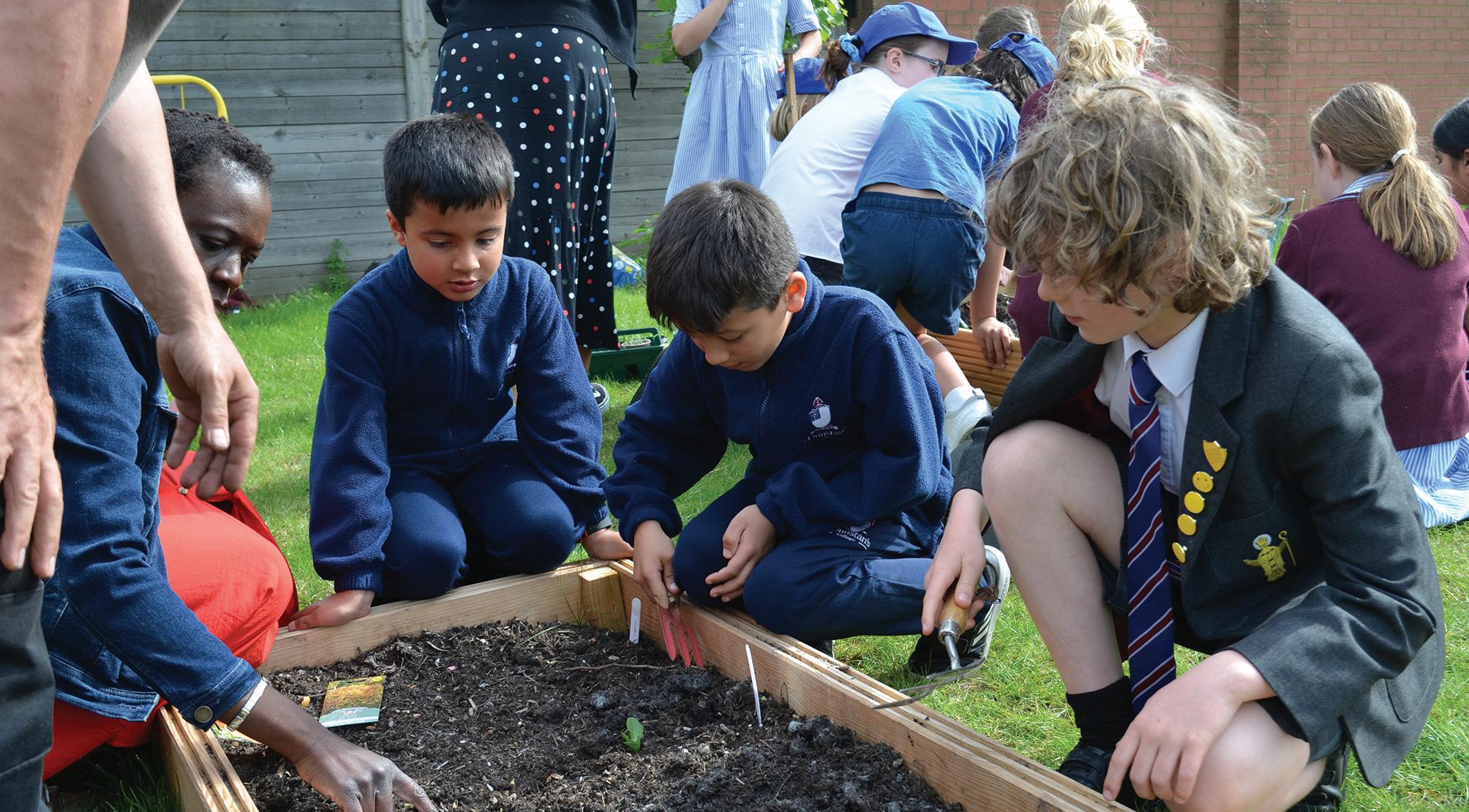
Pupils benefit from an allencompassing co-curricular offering, which enables them to develop their skills, broaden their understanding of the wider world and discover new passions and talents. Our Forder Programme allows pupils to immerse themselves in creative, physical and often challenging activities, alongside various opportunities to develop leadership skills and work on team building. Activities are largely open
to pupils across Prep, enabling our younger pupils to learn from role models in our upper Junior year groups.
The Forder Programme journey starts from as early as Reception and the variety and diversity of activities increases as pupils progress through the Junior School and develop their independence and organisational skills. Our broad and unique Forder
provision allows pupils to select activities that excite and challenge them, enabling them to uncover new skills that they may never have known they had before. No matter the pathway that they may choose for themselves, each individual will embark on a journey that offers opportunities for character development through our aligned College values: Curiosity, Compassion, Creativity, Courage and Core. Each
Junior School pupil is challenged to embrace the spirit of the College motto – Albam Exorna – by taking ownership of this journey, embracing new experiences and creating meaningful memories on their pathway through the Junior School, College and on into their wider life outside of school.


Activities take place before school, at lunch time and after school. In Prep, an additional timetabled lesson is devoted to our co-curricular programme. In addition to a wide range of sport, music, art and drama activities, we offer an extensive range of activities which change on a termly basis. These include activities such as debating, philosophy, yoga, LAMDA, chess and mindfulness. With over eighty activities taking place in the Junior School every week, there is so much to look forward to. The breadth and range of options available aims to cater for the needs, tastes and interests of all our pupils.
Year
‘I love how varied it is! Each week we discuss a different topic: philosophy, maths or English in our Academic Scholarship Preparation sessions. We studied Macbeth and Othello and performed to strengthen our skills in oracy and acting, as well as unpicking Shakespearean language
Our Stuart Curriculum enables pupils to develop the tools they need to develop into critical thinkers and globally aware citizens, who are ready for a future that is not yet known to them. It is an ambitious, bespoke framework which allows our pupils to excel and thrive in their learning of key life skills, relationships, the wider world and their contribution to society, becoming responsible citizens and critical thinkers in the process. We pride ourselves in our ability to challenge our pupils to formulate their own opinions about the wider world, being respectful of others, yet brave enough to articulate their own
thoughts and feelings with confidence and sensitivity of the fact that other pupils may have different thoughts and feelings to their own.
In weekly Stuart Curriculum lessons, pupils cover age-appropriate content covering termly topics of Relationships, Skills for the Future and Critical Thinking. Within these topics, pupils learn about community, their role within society and the opportunities and responsibilities they have as citizens and individuals within a broader life context. We encourage pupils to consider the positive impact of adopting a growth

mindset: embracing and not fearing challenges, developing resilience and learning strategies to have awareness of and be able to regulate their emotions.
These lessons form the core of our whole-College aims and values. We also include ethical and philosophical debate and offer all year groups an introduction to Mindfulness. When relevant, we invite external specialists and speakers to lead sessions with our pupils; these have included E-Safety, relationships, how to manage money and how to develop resilience.
Year 6 pupil
‘I think Stuart is really important. It teaches vital information which I know will be useful in my future life. Everyone has fun and we are all given the opportunity to share our opinion. You also have the chance to deal with worries that might have occurred during the week. We all support each other’
Pupil wellbeing is at the heart of everything we do in the Junior School. Our Stuart Curriculum enables pupils to develop their spiritual, moral, cultural, mental, economic and physical understanding.
In the Junior School, we aim to instil a sense of commitment and responsibility within our local community.
Meaningful opportunities offered to pupils allow them to understand the role they play not only within their home and school community, but also locally and within the wider world. From small acts of kindness to largescale charity projects, we host many events and run programmes to deepen pupils’ understanding of the role they play in supporting others and the community within which they live. We hope that in doing so, they are developing their sense of empathy, gratitude and compassion towards others.
Junior School representatives take
part in a whole-College Charity Committee, deciding each term who should be supported by the College in our various charitable events, for example supporting the ‘Hello Yellow’ Young Minds campaign on World Mental Health Day or Save the Children on Christmas Jumper Day.
In addition, our Forder Programme includes pupils venturing into the local community to learn more about our environment and those within it. We endeavour to host events within the local community and invite the public to various performances, presentations and workshops within
our St Dunstan’s Festival in the Trinity Term. We also make the most of our local environment by hosting the Junior School Harvest Festival and Carol Service at St Laurence’s Church, Catford.

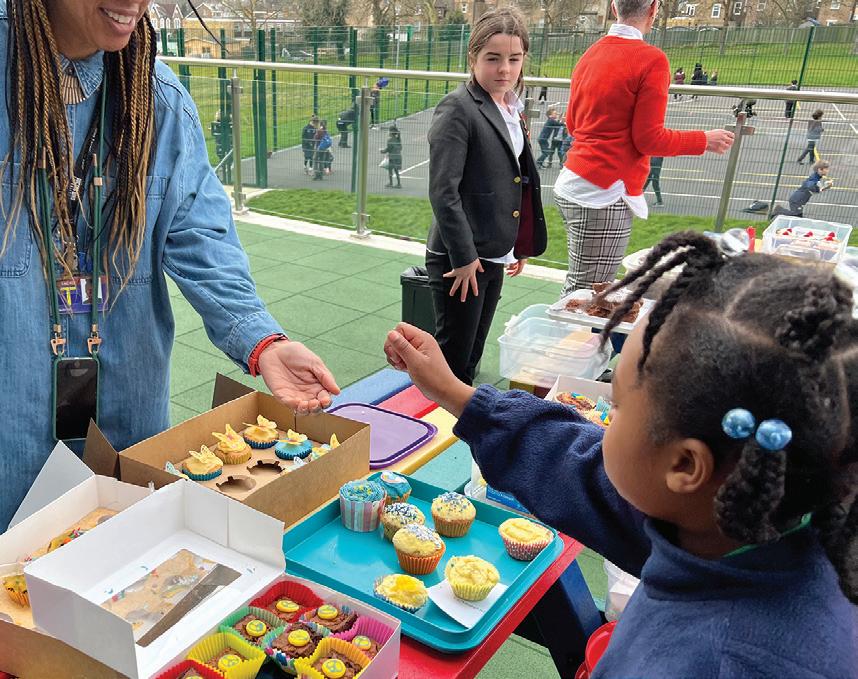
‘Pupils show compassion and kindness and have a discernable appreciation for their community and the world beyond’ Independent Schools Inspectorate, 2019
Pupils are provided with a range of opportunities to contribute towards the strategic vision of the College and there is an emphasis on ‘pupil voice’ throughout their school experience.


Each year in the Junior School, the College endeavours to increase the roles and responsibilities available to pupils, as their awareness of whole-College matters develops alongside their ability and confidence to articulate their views. The Junior School staff actively seek opinions, ideas and suggestions from pupils; their decision-making contributes directly to school improvement and target setting. The pupils are at the heart of our school community and it is therefore essential that their voice is heard by enabling them to partake in roles and duties where they feel their contribution is valued, welcomed and has a wider whole-College purpose.
Our College Parliament representatives meet on a weekly basis, comprising of one pupil per class from Year 2 to Year 6. The Junior School Pupil Parliament forms part of a wider whole-College Pupil Parliament (including representatives throughout the College from Year 2 to Sixth Form), who meet on a termly
basis at our G8 Summit at the Council Chamber in Catford to report to one another the progress they have made working on particular projects. Their ideas from these meetings also feed into our wider College Development Plan.
When pupils are in Year 6, additional responsibilities are introduced and these include: Sports Captains (selected by the Junior School sports staff), House Captains (voted for by the pupils in their House) and two Heads of School (voted for by the Junior School staff).
The Sports Captains are involved in the organisational elements of their sport (both as part of the Forder Programme and within lessons), lead warm-up activities for others, keep score at certain events, represent the College at all fixtures for their age group within their particular sport and model the values of teamwork, sportsmanship and playing fairly.
The House Captains are expected to take pride in their House, showing both dedication and commitment to the team they are leading. The pupils take a lead role in organising key House events, meeting on a weekly basis with the staff Heads of House. They are positive role models and ambassadors for the College, celebrating the success and achievements of others.
The Junior School Heads of School are representatives of the Junior School, working closely with the Head of Junior School. They are responsible for giving feedback about life in the Junior School, as well as assisting with some essential duties as part of the daily routine. They will also be expected to attend key events and functions, including regular opportunities to speak to a large audience.


Pupils in the Junior School explore the benefits and importance of sustainability through the taught curriculum, co-curricular programme and general day-to-day action taken within the College. They are encouraged to take responsibility for their actions and understand the significance of them both in regard to the school community, but also the wider world.
Our sustainability education includes:

• Taking part in the Travel for London Sustainable Travel: Active, Responsible, Safe initiative
• Holding ‘Walk to School Week’
• Running Forder Programme activities with an environmental focus, such as ‘Recycling Rocks’ and ‘Eco Club’
• Learning about environmental topics as part of the International Primary Curriculum
• Taking part in environmental competitions e.g. creating an air quality banner and writing poems about food wastage
• Engaging in topical discussions as part of the Stuart Curriculum
• College Parliament representatives monitoring air quality and logging results on a daily basis across different areas of the College site
• Holding a ‘Car Free Day’ and ‘Car Sharing Day’
• Learning about road safety
• London Underground route planning
• Whole-school step count
Sustainability is integral to every aspect of our lives and parents are heavily involved in reiterating the message that we must all be aware of our environment and that strategies should be implemented to look after the planet as much as possible for our own wellbeing and future.
Junior School staff and pupils across the College are active members of the Green Society, who are instrumental in delivering current information regarding environmental issues to pupils in assemblies and also work towards initiatives to ensure our environmental contribution is the best that it can be.

‘Pupils are able to engage with the great issues of our time, such as climate change and inequality, in an intelligent way’ Independent Schools Inspectorate, 2019
Pastoral care is the responsibility of all members of staff, who take time to develop trusting, positive relationships with pupils, understanding that pupils are individuals with their own qualities, skills and characteristics. We pride ourselves on the strength of our community and adopt an ‘open door’ policy with all parents and pupils.

Every form has a Form Teacher, who will teach the majority of lessons to their class, plan Form Time sessions every morning and afternoon, as well as at the end of the school day. The College motto – Albam Exorna –translates to ‘Adorn the White’. This phrase is connected to the white shield that serves as three quarters of the school’s crest. The white is the blank canvas onto which will be adorned the as-yet-unwritten story of each St Dunstan’s pupil: each individual journey through school and life beyond. This is reflective of our
appreciation that each pupil has their own unique qualities and attributes. We believe that the principles underpinning the narrative of our motto are reflected in the values we foster in our young people and embed in our school community and culture today.
We strive for a school of individuals who have the Courage to be who they are, the Creativity to develop new ideas and shape their own futures, the Confidence to try, succeed and respond positively to failures, the Compassion to understand and appreciate others and the wider world, and the Curiosity to always to want to discover more.
Before School Care starts at 0745 and After School Care runs until 1800. Pupils attending wrap-around care will be supervised by a qualified member of our teaching support staff. Our
wrap-around care provision enables pupils to complete their homework, take part in additional play time and enjoy structured activities. Numbers for this facility are never limited in order that it is accessible to all our parents, whether block booking sessions, or for those requiring flexibility on a day-by-day basis.
At St Dunstan’s College we understand that it is only when pupils are happy, settled and feel safe in school that they are able to thrive and achieve their true potential.
‘The teachers are fair and always there to listen to us. They make sure that we have all we have the skills we need to keep us safe’ Year 1 pupil
Year 6 pupil
The educational provision at St Dunstan’s College is tailored to meet the needs of every individual. This begins with high-quality, differentiated teaching, ensuring that targeted support takes place inside the classroom for all. Our small class sizes and additional teaching support ensures that we always have an awareness of how each pupil is progressing with their learning and we are able to respond to what we see proactively, scaffolding learning where needed and ready with an additional challenge if a child is ready to move on with their learning.
Where additional support is required, our SEND team works across the Junior School, providing support to identified pupils through more tailored intervention. The team will ensure that supportive and personalised strategies for those children with SEND are put in place, both inside the classroom and through purposeful and targeted intervention. We aim to work closely with families to ensure that there is
a cohesive approach to supporting the individual child with plans that are put in place to include measurable targets and appropriate strategies.

Children with English as an Additional Language (EAL) are supported in a similar way whereby the SEND team and Modern Foreign Languages (MFL) Coordinator identify and support children to ensure that access to the language used in the classroom does not become a barrier to their learning. Pupils who are bilingual or more able in a particular language are suitably challenged in our languages lessons to ensure that they develop their language learning further.
Our high-achieving pupils are consistently challenged both inside the classroom through high-quality
teaching and differentiation, and outside the classroom through enrichment opportunities. Enrichment activities are sent home each term outlining additional tasks and activities that the children can engage with topics that they are particularly interested in. Alternatively, children who have been identified as high-achieving in a particular subject may be invited to an enrichment group after school to challenge and develop their understanding further or a bespoke workshop, in collaboration with Senior School specialists. Further opportunities to nurture talents can also be seen through bespoke educational visits and pupils participating in both local and national competitions, including mathematics, chess and art.
‘When you join St Dunstan’s, you feel like everyone is a friend to you and they help you when you are in need. We celebrate each other’s differences and value everyone in the school community’
Learning Support encompasses those pupils with Special Educational Needs and Disabilities (SEND), English as an Additional Language (EAL) or Gifted, More Able & Talented (GMAT).
I loved sharing a dorm with my friends because we stayed in bunk beds and got to chat and spend lots of time together. Every day, I got to try something new which was exciting and challenging. My favourite activity was Jacob’s Ladder - I loved how the teachers joined in too ’
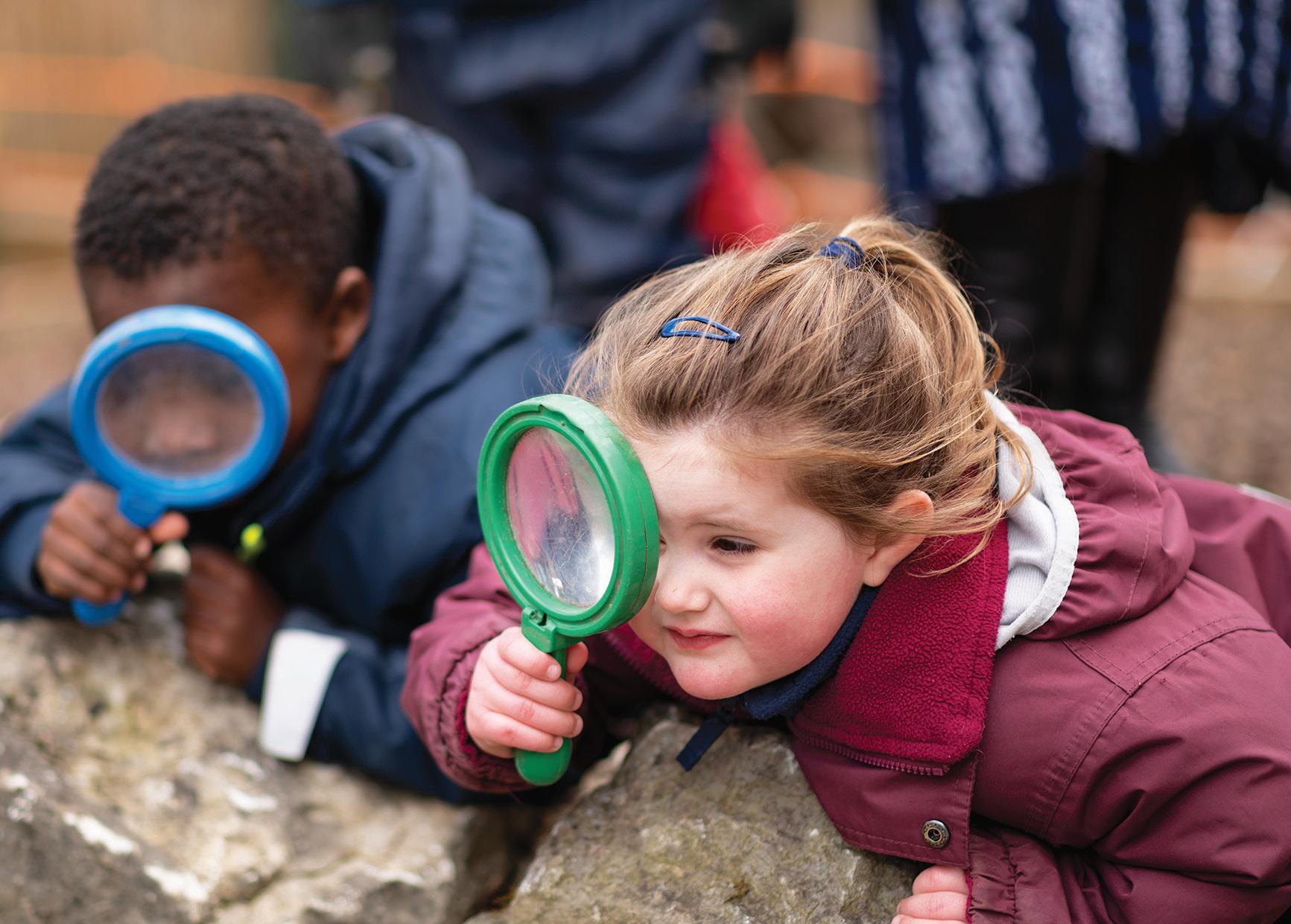

From Year 2 to Year 6, pupils are offered a range of opportunities to experience the benefits of learning in an out-of-school context with high quality, overnight residential trips.
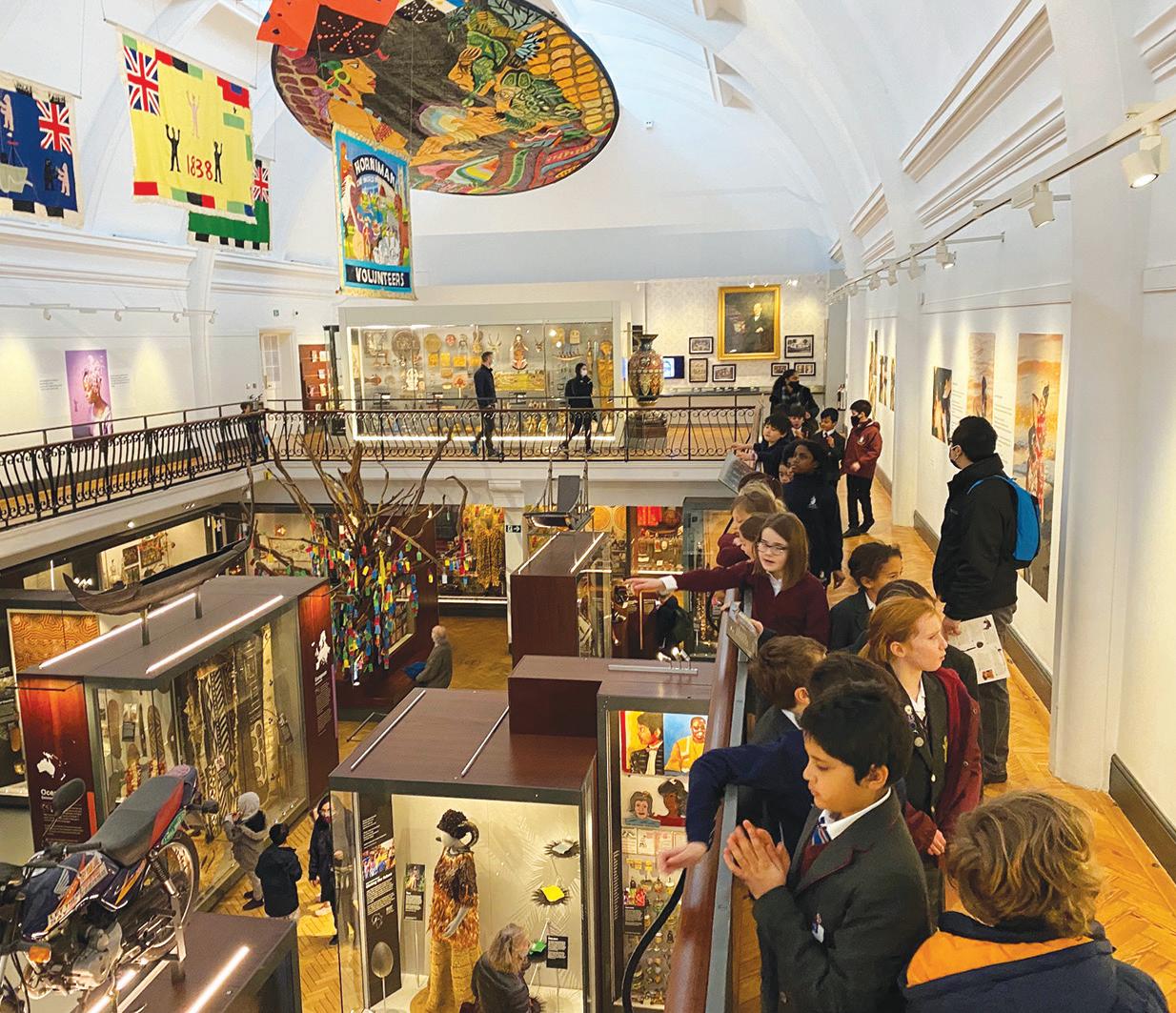
We believe that these experiences enrich the taught curriculum, foster deeper and often new relationships with peers, develop resilience, teamwork skills and increase independence, as well as a sense of belonging. Pupils form new friendships, confidence and self-awareness through the variety of experiences they encounter. The memories made on these trips are invaluable and pupils speak about their trips and the adventures they have experienced with fondness and delight.
In Year 2, pupils camp on the school grounds overnight and take part in team-building activities, enjoy a summer barbeque together and spend time around a campfire. In Year 3, pupils spend two nights and three days on their residential trip, following a team-building theme. They learnkey life skills including how toprepare food, keep their room tidy, packing, making the bed, all at the same time as having fun with their friends.

Year 4 journey to Sheringham, Norfolk to spend three nights away
at the Hilltop Activity Centre. There, the pupils experience a variety of activities, the picturesque location and the opportunity to develop their teamwork and collaboration. Pupils also journey to the British coastline to enjoy the beach, examine rock pools and explore the effects of erosion. The activities during the day include assault courses, problem solving activities and even the high swing. In the evenings, pupils enjoy games in the woods, an evening walk and a disco.
Year 5 pupils embark on four nights away, completing team-building activities at Manor Adventure, Shropshire. From canoeing, to raft building, abseiling to high ropes, all pupils confront a challenge and face their fears in a fun, safe environment on their action-packed adventure week away.
When pupils are in Year 6, they travel further afield for five nights to Maison Claire Fontaine, in Burgundy, France. This visit is part of the Modern Foreign Languages curriculum and the focus of the trip is a completely immersive French-speaking experience. All lessons and activities are led by teachers who are bilingual native French language speakers and the increased confidence pupils have when speaking French upon their return is quite remarkable.
In the Junior School, pupils are provided with many opportunities to join together as a community to celebrate a key date, event or particular festival.

Often these events involve parents joining us and we embrace any opportunity to bring our whole-College community together, including events taking place both in and outside of school. In addition to this, we have a main ‘Theme of the Week’ as a whole-College, where we place an emphasis on a particular topic during a time of celebration, for example the theme of Light during Diwali, World Mental Health Week and Anti-Bullying Week. We focus on that topic in assembly time, during Form Time and at various additional points in the week.
Examples of key Festivals and Celebrations in the Junior School:

Harvest Festival
Remembrance Service
Carol Service
Anti-Bullying Week
World Mental Health Day
E-Safety Day
Black History Month
World Book Day
Commemoration Day
Science Week
‘It was really exciting to be one of the first groups to perform in the new Drama Studio this year! Being part of our Showcase made me feel ecstatic since it was my first experience under the spotlights, and we had worked so hard to perfect our songs, dances and acting. It was a huge success!’
Year 5 pupil

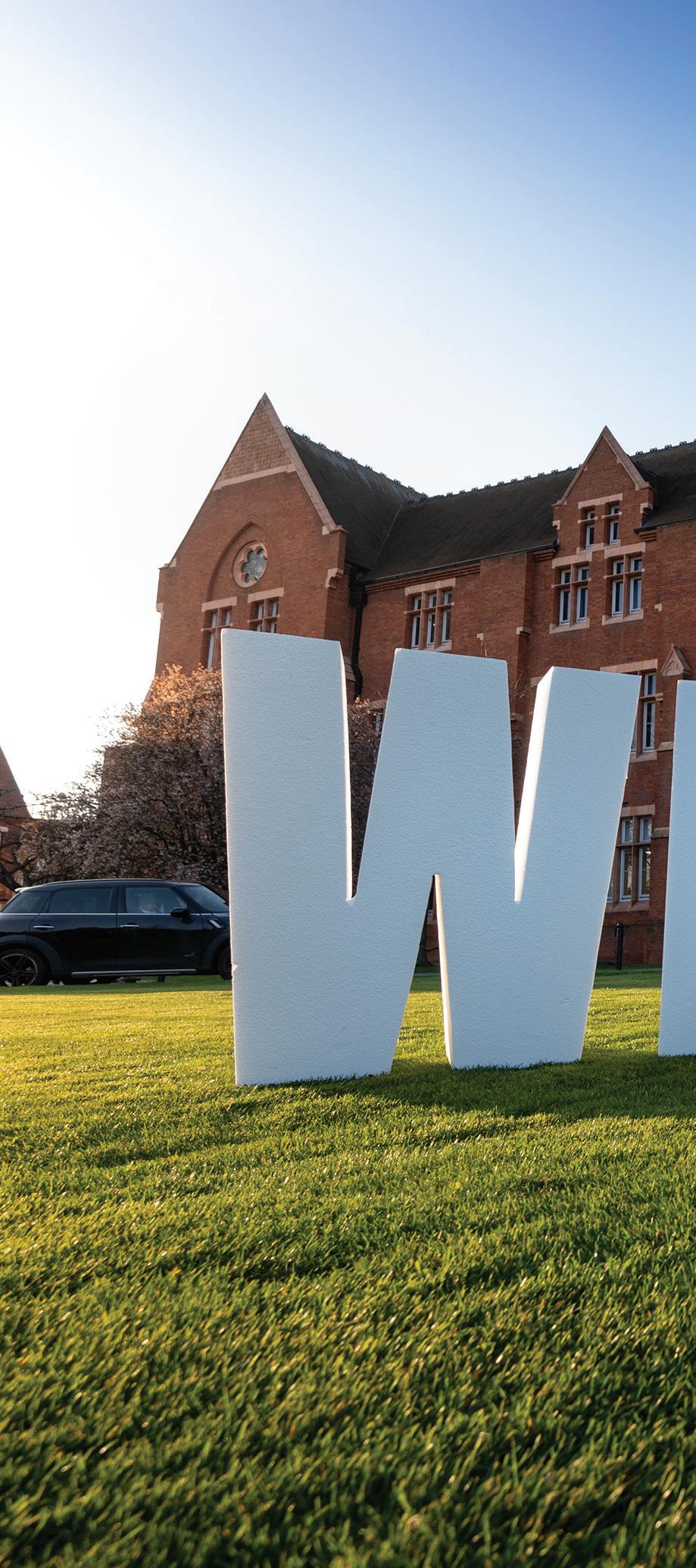
We accept registrations for our Nursery from birth, and early registration is advised. Children are considered for entry to the Nursery provided they have reached the age of 3 by the start of the Michaelmas Term. The deadline for online registration on our website for both Reception and Nursery entry is November of the year before entry. Our 3+ and 4+ assessments take place in November and early December.
Our 3+ assessments are relatively informal, lasting one hour and take place in small groups. Our 4+ assessment is designed to help the children show us what they have already covered in their current setting and all tasks are undertaken in a thoughtful, caring and friendly manner. Please refer to our separate Junior School Admissions leaflet for more detailed information and exact dates.
The deadline for online registration on our website is early December of the year before entry.
All pupils who apply are invited to attend an assessment
day at the College in early January. The day consists of an assessment of their academic ability, as well as observations of their learning behaviours during lessons. Please refer to our separate Junior School Admissions leaflet for more detailed information and exact dates.
Occasional places do become available from time to time in all year groups. Assessments are arranged as appropriate and will involve your child spending part or all of a school day with us. They will experience a mixture of time in class and formal academic assessments.
For all points of entry, we will also contact your child’s current setting or school to ask for a reference or recent school report. If you have any further questions concerning your child joining the Junior School, please contact our Admissions Team directly.



The best way to see what life is like at St Dunstan’s College is to visit us in person. We would encourage all families considering an application for 3+, 4+ and 7+ entry to book on to one or more of our open events.

Saturday 24 September 2022
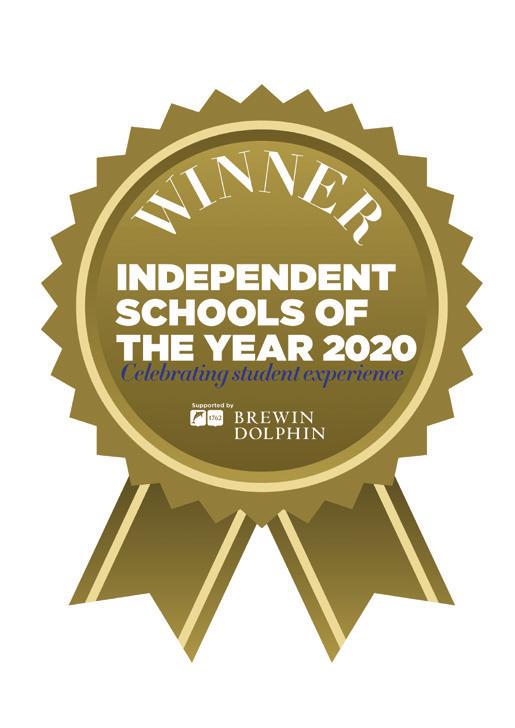
This Open Morning showcases everything that St Dunstan’s College and the Junior School has to offer. Families will be able to visit our facilities, meet staff and current pupils, taking part in a variety of activities to help understand what makes St Dunstan’s so unique.
In the Michaelmas and Trinity terms, we offer the opportunity for prospective parents and pupils to visit the College as part of a small group tour during the school day. This will allow you to see the school day in action, view our facilities and visit lessons, as well as hear from the Head of Junior School.

Junior School Office 020 8516 7225 College Office 020 8516 7200 St Dunstan’s College, Stanstead Road, London, SE6 4TY Charity number: 312747 www.stdunstans.org.uk
www.stdunstans.org.uk
An ambitious, forward-thinking community that inspires and supports individuals to thrive